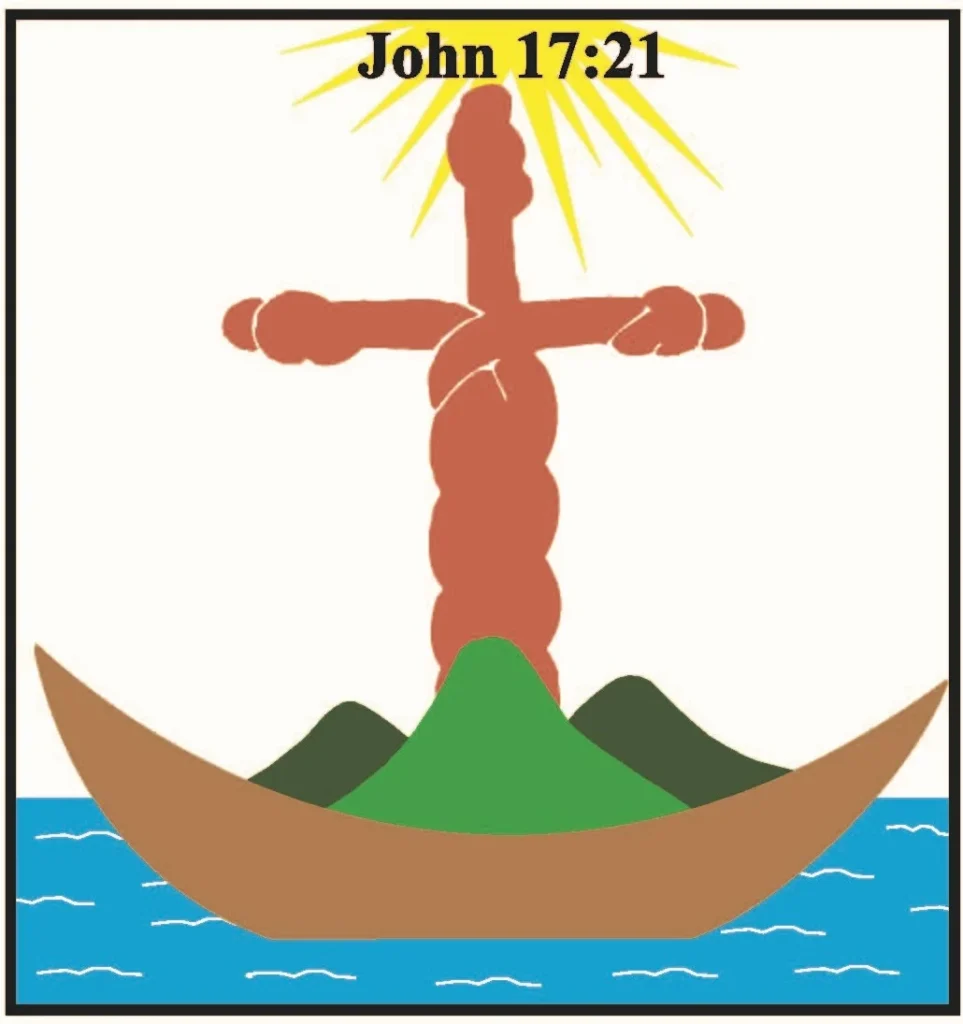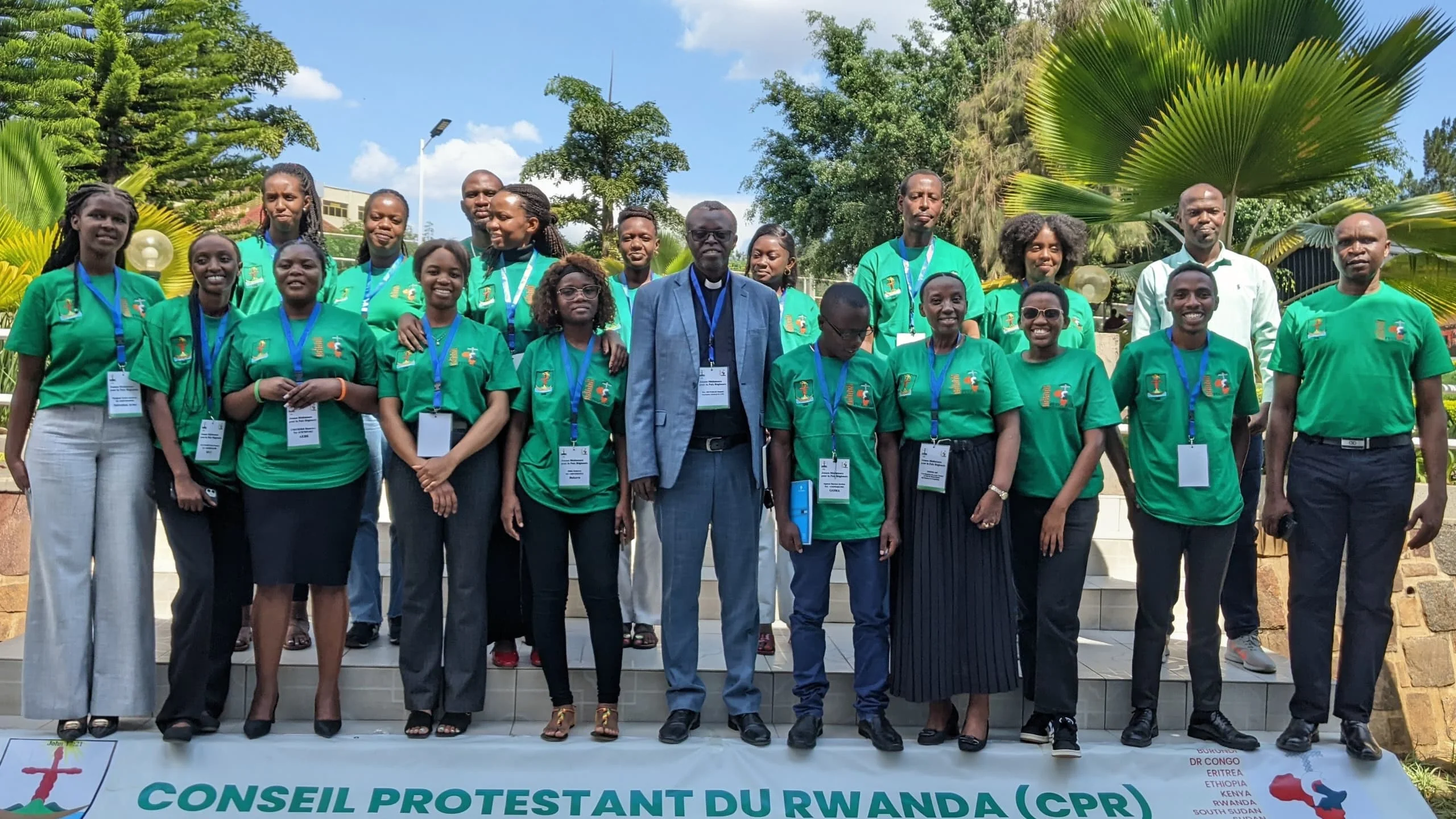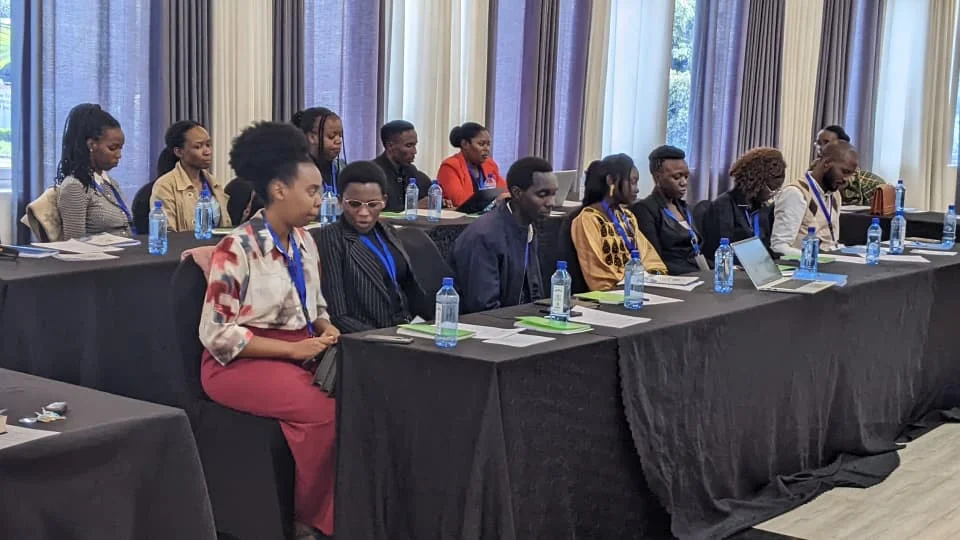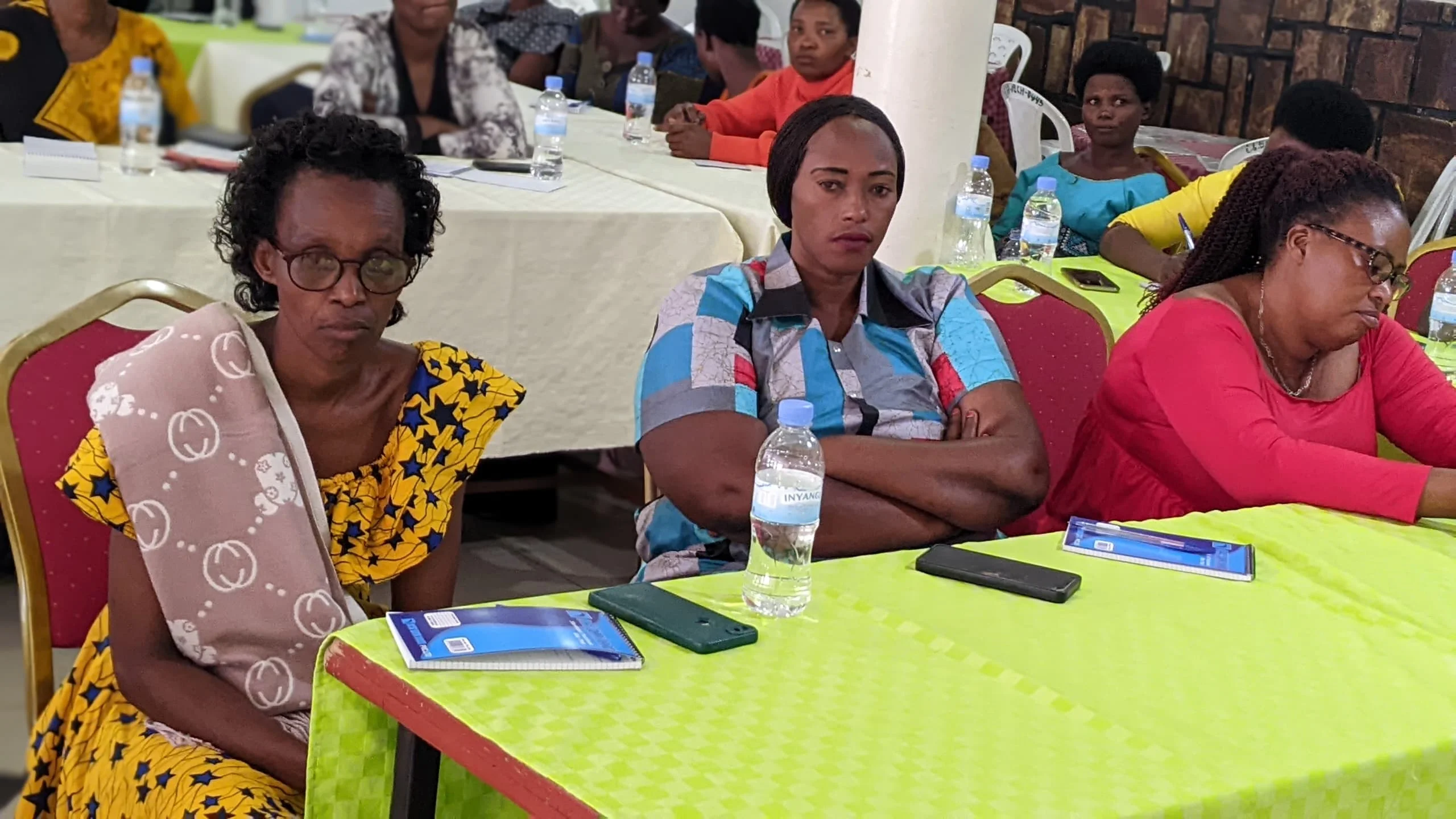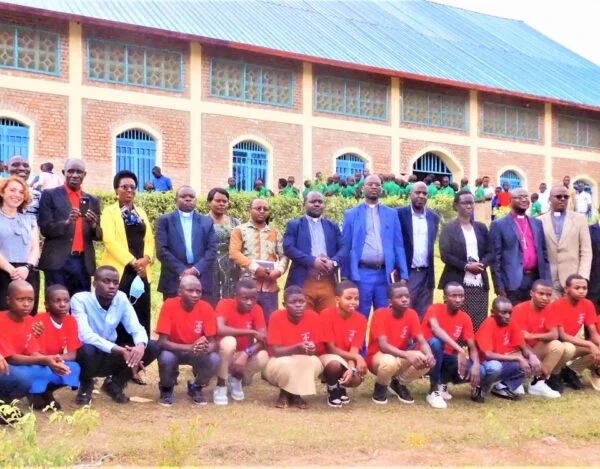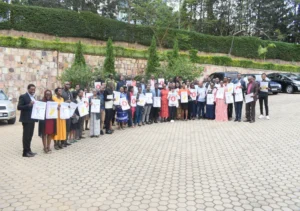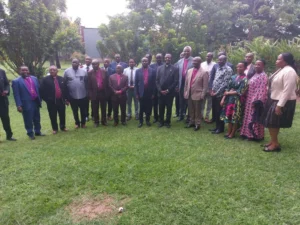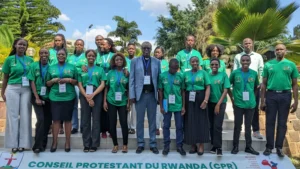The Education Department of the Protestant Council of Rwanda (CPR) organized a two-day workshop from August 26 to 27, 2021. It was held at the African Leadership and Reconciliation Ministry (ALARM) Reception Center located in Kagagu, Kigali City. The 60 workshop participants consisted mainly of school principals, church education officers, CPR District Representatives, members of the education commission, and CPR staff.
The meeting began with prayer and meditation on the Word of God by Rev. Dr. Pascal Bataringaya, President of the Presbyterian Church in Rwanda (EPR) and Legal Representative of Protestant Education. His sermon focused on the healing of a lame man (Acts 3:1-10). Peter and John did not give silver or gold coins to this begging man; they healed him. When he was able to walk, he jumped up and down, praising the Lord. Helping the poor remains the mission of the church, but we must give them what is essential. They need to heal and work themselves rather than giving them a little money that they consume and continue to beg.
The workshop was officially opened by the President of the CPR and Legal Representative of the Methodist Church of Rwanda (EMLR), Bishop Samuel Kayinamura. His speech focused on church unity and inclusive participation in church activities. The CPR’s study on the status of inclusive education came at the right time to remind churches and Christians of their responsibilities. The presentation of the main findings of the study was made directly by Dr. Beth Mukarwego Nasiforo. She and Mr. Abel Dufitumukiza, who sadly passed away recently, led the study activities. In summary, the findings include the following:
- Rwandan education policy strongly supports inclusive education in all schools.
- Rwandan teachers are willing to serve students with disabilities. However, teachers at all levels have not received the necessary training to teach students with all disabilities.
- Neither students nor their parents easily accept a teacher who has any disability.
After analyzing the results of the questionnaire and the interviews conducted during the study, the two researchers made recommendations to the churches, the CPR, parents, and schools. Workshop participants had time to exchange and discuss in working groups how to put these various recommendations into practice.
During this workshop, the other point on the agenda was the digitalization of education. Indeed, technology evolves very quickly and does not leave behind the development of education. This is why the CPR Education Department invited the company Loxo-Tech to present and explain to the participants what it does in the field of IT. It is a Rwandan company that has been awarded by the African Union. Currently, it operates in other countries including Ethiopia, Guinea and the Democratic Republic of Congo. It offers schools the “Shule” software which facilitates distance learning (e-learning) and the daily management of administrative, financial and pedagogical activities.
Loxo-Tech offers free websites to schools that agree to purchase its “Shule” application for one or more of these activities: distance learning, financial management, human resources management, and student management. Loxo-Tech emphasized that with all the lessons prepared and delivered by teachers and often viewed by a large number of their students and teachers, it allows them to generate income through the use and visits of their YouTube account connected to the school’s platform. To facilitate schools, Loxo-Tech provides them with low-cost laptops and tablets. Workshop participants had time to ask questions to Loxo-Tech staff and received satisfactory answers.
During this two-day workshop, participants had another opportunity to learn from GPENreformation, which brings together Protestant schools and educational institutions worldwide. They also shared information on the situation prevailing in Protestant schools in Rwanda, specifically during the Covid-19 pandemic.


